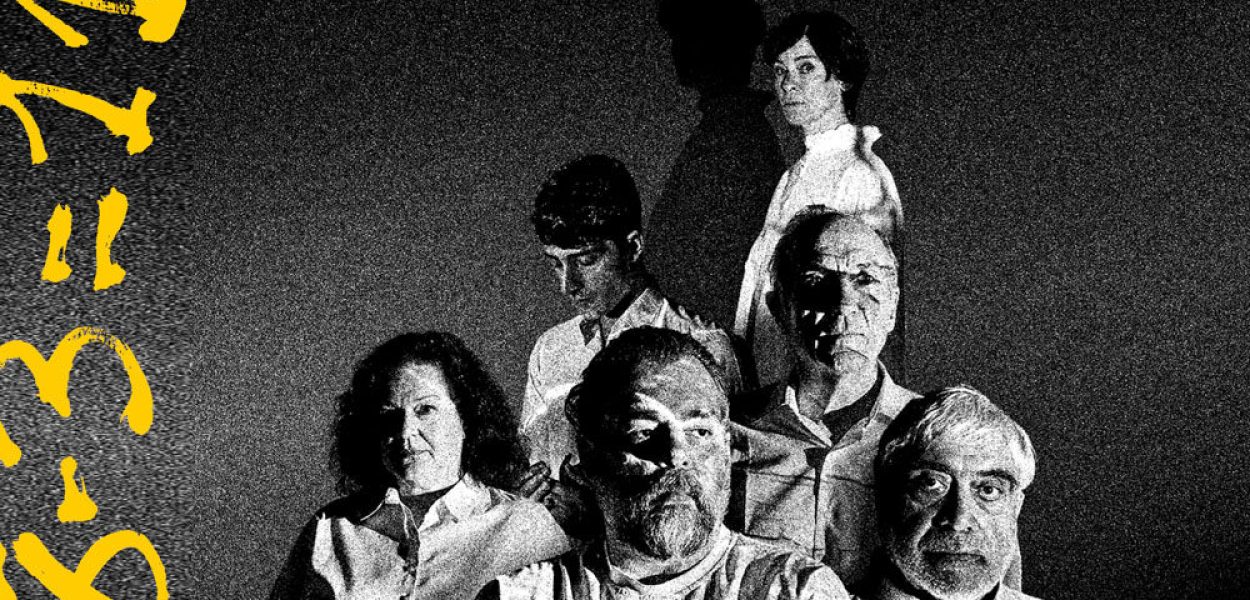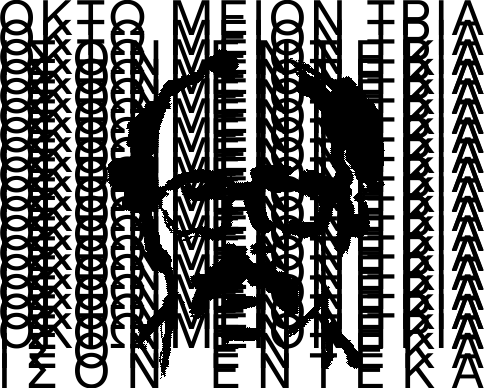
Translation: G. V. Tsokopoulos
Direction, Adaptation, Dramaturgy: Maria Protopappa
Dramaturgical Collaboration: Elena Triantafyllopoulou
Artistic Collaboration: Eleni Spetsioti
Set & Lighting Design: Sakis Birbilis
Costume Design: Vana Giannoula
Music: Lolek
Movement Direction: Alexandros Vardaxoglou
Vocal Dramaturgy & Coaching: Anna Pagkalou
Assistant Director: Evi Nakou
Assistant Set Designer: Natasa Tsintikidi
Model Construction: Olga Koutroumanou
Production Management & Execution: Kart Productions
Press & Media: Maria Tsolaki
Advertising & Social Media: Renegade Media, Vasilis Zarkadoulas
Promotional Photos & Video: Mariza Kapsambeli
Camera: Alexandros Georgiou
Photo Shoot Make-Up: Eirini Gatou
Trailer: Thomas Palyvos
Promo Design: Giannis Stamatopoulos
Cast:
Woman: Maria Protopappa
Andromache: Argyris Xafis
Hermione: Tasos Lekkas
Menelaus: Giannis Ntalianis
Peleus: Dimitris Piatas
Thetis: Stella Gkika
Chorus (in alphabetical order): Dimitris Georgiadis, Nontas Damopoulos, Dimitris Mamios, Giannis Manthos, Konstantinos Passas, Giorgos Fasoulas
Production: Theatrou Techni LP
~ When human justice fails,
Nemesis restores balance
and a woman's right to claim her place in the world ~
“Andromache” by Euripides, directed by Maria Protopappa, a tragedy that remains startlingly relevant as it explores experiences of terror and destruction, individual choices and their profound impact on society, will be presented on Saturday 30 and Sunday 31 August at 9 p.m. at the Ancient Theatre of Philippi, as part of the 68th Philippi Festival.
Drawing on the translation by G. V. Tsokopoulos, the acclaimed director and actress undertakes both the dramaturgical and directorial treatment of a play that raises critical questions, and with her trademark forcefulness, she takes on the role of the Woman.
An exceptional acting ensemble portrays the remaining tragic figures: Argyris Xafis plays Andromache, Tasos Lekkas is Hermione, Giannis Dalianis is Menelaus, and Dimitris Piatas is Peleus. Thetis is played by Stella Gkika, and the chorus features Dimitris Georgiadis, Dimitris Mamios, Konstantinos Passas, Giorgos Fasoulas, Giannis Manthos, and Nondas Damopoulos.
Euripides’ Tragedy
We are transported far from the great city centres, to rural Greece. Thessaly, Phthiotis, Thetideion. To the house of Achilles’ son, Neoptolemus. There we witness the dramatic clash between two women: Andromache, widow of Hector and now a slave to Neoptolemus, and Hermione, Neoptolemus’ wife. Hermione, full of jealousy and spite, accuses Andromache of being the reason Neoptolemus no longer desires her nor wishes to have a child with her, while he already has a child with Andromache. The conflict escalates when Menelaus, King of Sparta and Hermione’s father, decides to put Andromache’s child to death, in one of the most extreme acts of revenge and arrogance.
Neoptolemus, the violent, ruthless, and impious hero of the Iliad, upon whom the Greeks’ victory at Troy depended, proves unable to meet his responsibilities as a father, husband, and leader. He departs in search of healing at the Oracle of Apollo in Delphi. His war-driven frenzy has poisoned his bed, his home, and his city. Before the eyes of the woman he irreparably wronged, he will receive the kind of punishment that came to be known as Neoptolemean Retribution.
In a reversal of the heroic Iliad, Euripides undermines the arrogance of the Greeks and the illusion of their cultural superiority. The pre-war promises of a united, strong country are shattered in a landscape of decay, old age, fear, and envy.
The responsibility lies not only with the instigators, but also with those who believed in them and contributed to the collapse of values through their complacency. The new generation pays the price. The devastated country is represented by a grotesque chorus of women, abandoned, frightened, submissive in their bewilderment.
The performance
Women in the ancient arts, from sculpture and painting to poetry, are often depicted as symbols of their homelands, defending their countries as a mother defends her children. Male figures, by contrast, are tasked with strategy and political leadership.
In Maria Protopappa’s dramaturgical and directorial approach to “Andromache”, Hermione and Andromache embody the ideals of their respective nations, while Menelaus and Peleus represent politics and power. These women are not simply feminine figures, they have been shaped by men to symbolise the ideal role of the nation and society. Thus, though Euripides’ tragedy speaks of a household, it ultimately concerns the ethics and political management of a state in peacetime.
Euripides’ language breaks the conventions of his time and transforms into incantations pulsing with corporeality, sensory memory, and collective experience. These precious and untranslatable elements are what the director seeks to bring to light and to communicate, not only through words, but also through movement, with the support of an exceptional ensemble of Greek actors.
Note by Maria Protopappa
“A woman taken as a prisoner of war and her child, the illegitimate offspring of rape, become a source of scandal in a small provincial town. Andromache’s insistence on surviving, her hope and longing for the future, her courage to resist and denounce the injustice she suffers, upends the local establishment, breaks up households, shatters alliances, and exposes the deep inequalities of society.
With striking force, Euripides lays bare the arrogance of the powerful and the illusion of superiority held by the “civilised” Greeks over the “savage” barbarians, revealing the fundamental injustices of their world.
Andromache becomes a symbol of resistance against social and political oppression. She is a woman who, despite being mistreated and silenced, refuses to submit. Her actions, her persistence, and her voice undermine the status quo and shake the foundations of entrenched power. The reversal of expectations, the breaking of taboos, and the exposure of the irredeemable cruelty rooted in power become the driving force that destabilises the system and brings Nemesis into the very heart of society.
In unveiling the moral poverty of those in power, Euripides goes beyond the surface. He digs deep, showing how corruption and violence inevitably turn back upon those responsible, operating as a kind of natural, divine intervention. When human justice fails, Nemesis takes over, restoring balance, and with it, the woman’s right to claim her place in the world, regardless of social prejudice.
In “Andromache”, the pursuit of justice, the need to be seen, and the insistence on truth transcend social convention, exposing the cracks in authority and its hubris. Through Andromache’s voice, Euripides urges us to recognise the true worth of the human spirit, of resilience, strength, and the sense of justice, which will always stand above the interests and contradictions of the powerful.”
|Andromache|
|Saturday 30 & Sunday 31 August, 21.00|
|Ancient Theatre of Philippi|
Ticket prices: €23 General Admission, €20 Student, Unemployed, People with Disabilities
Online Presale:
https://www.more.com/gr-el/tickets/theater/andromaxi-tou-euripidi-periodeia/
Presale
Kavala: Municipality of Kavala Visitor Information Centre (former EOT), Central Square, tel: 2510-620566, daily from 10:00 to 14:00 and 18:00 to 21:00. On the day of the performance, tickets will be available at the Ancient Theatre of Philippi from 19:00.
Krinides: Café “Proskinio”, Ancient Theatre of Philippi, tel. 2510-516090
*No entry is allowed after the start of the performance.
**Once again this year, there will be a special KTEL Kavala bus transporting spectators to and from the Ancient Theatre of Philippi, upon presentation of a valid ticket for the performance. Return fare: €4.00.
Departure from KTEL Kavala: 18:45 – Return after the end of the performance.
Note: Holders of personalised invitations for the 68th Philippi Festival are requested to confirm their attendance by Thursday 28/8. Identity checks will be conducted at the theatre entrance on the day of the performance.
For more information, call the Municipal and Regional Theatre of Kavala at 2510 220876 (10.00 – 14.00).
4 Philippou Street,
65403, Kavala
Tel.:+30 2510 220 876
Email: [email protected]
13 Averof Street, Kavala
Tel.: +30 2510 834 777
10 Lydias Street, Krinides


© Municipal and Regional Theatre of Kavala. All Rights reserved.
Terns of Use | Personal Data | Credits